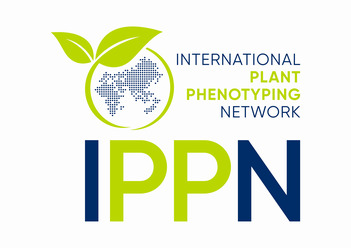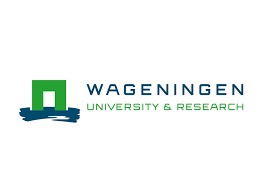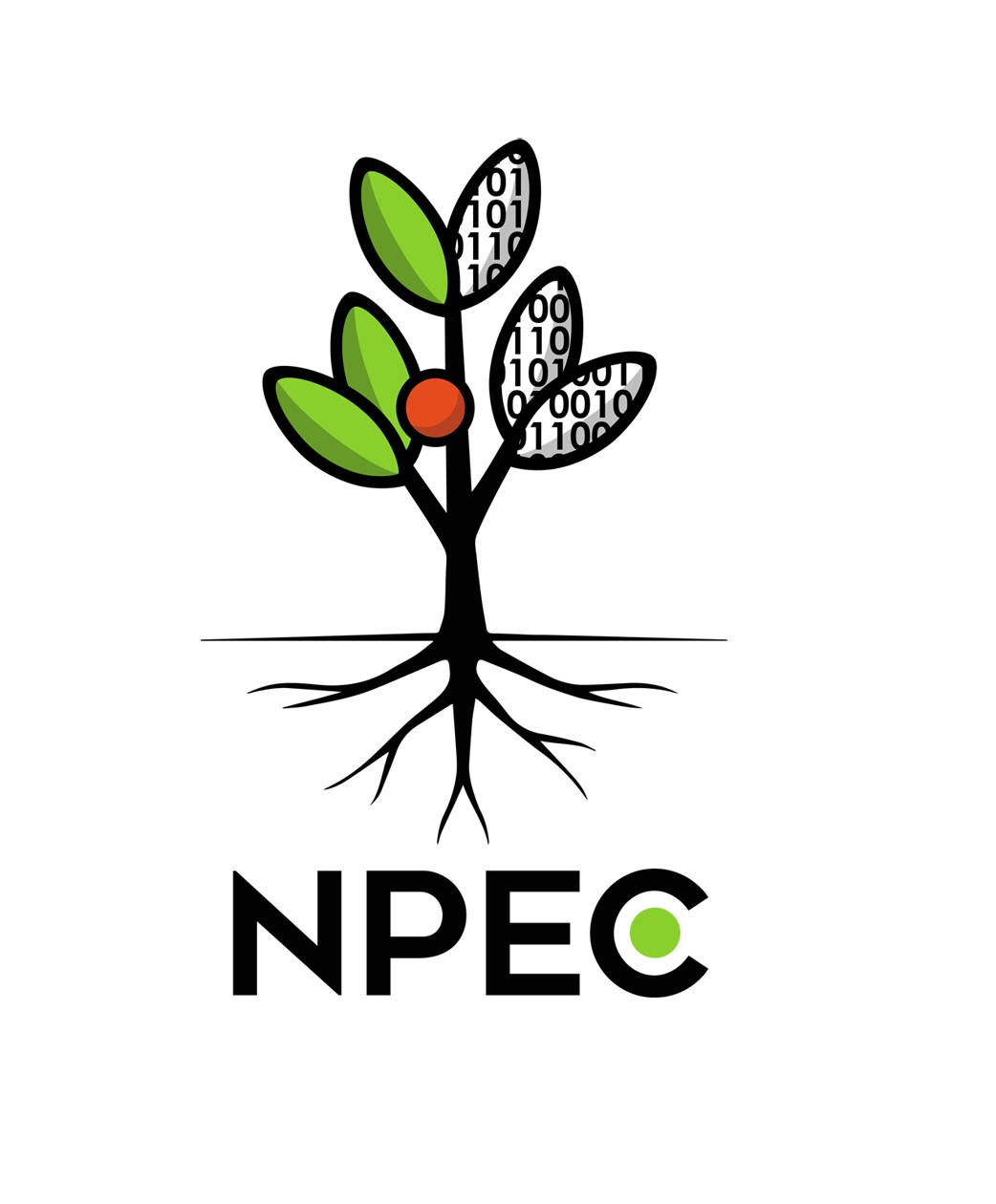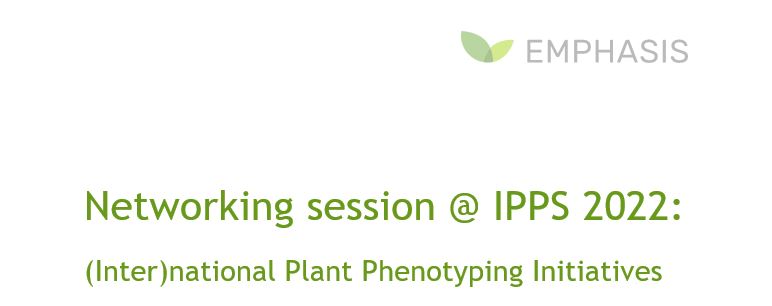- Rita Sylvester Archibong, « Affordable phenotyping » International Institute of Tropical Agriculture
(IITA), Nigeria. - Ayomide Kasali, Olaniyi Oyatomi, « Use or need of affordable phenotyping » International Institute
of Tropical Agriculture, Ibadan - H. Bethge , T. Rath, T. Winkelmann « A low-cost multi-sensor system for automated in situ
monitoring of plant in vitro culture ».University of Applied Sciences Osnabrueck, Germany. - S. Seitner, « The ‘PHENOBox’, a flexible, automated, open-source plant phenotyping
platform. »Vienna Biocenter Core Facilities (VBCF), Austria. - Si Yang, Lihua Zheng, Minjuan Wang, Lasse Klingbeil, Heiner Kuhlmann « Computer vision based
affordable phenotyping: from data acquisition to data analyzing. » China Agricultural
University, Beijing, China; Bonn University, Germany - H. Garbouge, Mouad Zine El Abidine, Pejman Rasti, David Rousseau, « lower image annotation
cost with transfer learning » Université d’Angers France. - Elena Grosu, Dheeraj Rathore, Guiomar Garcia-Cabellos, Anne-Marie Enright, Ewen Mullins
« Screening plant growth promoting bacteria using bespoke rhizoboxes for affordable root
phenotyping »Teagasc, Department of Crop Science, Ireland - Ji Zhou « Affordable phenotyping for cereal field phenotyping » Cambridge Crop Research, NIAB
UK ; Nanjing Agricultural University China. - Vinicius Munaldi Lube « MultipleXLab: A High-Throughput Imaging Platform based on Deep Learning to Assist in Selecting Important Plant Traits for Improved Crop Production » KAUST, Saudi Arabia.
- Raise awareness and provide information and latest news on major plant phenotyping initiatives of regional and global relevance, their scopes and benefits;
- Provide a platform for exchange and discussion on potential synergies, alignment and joint activities on global level;
- Prepare and strengthen future cooperation between these initiatives;
IPPS2022 Side Events & Satellite Meetings

A selection of workshops, satellite meetings and other meetings will complement the scientific program of IPPS2022.
In order to provide an overview, the lists below have been assembled to guide attendees to the topic of their interest.
The IPPN satellite meetings are organized by the IPPN Working Groups. They are open for any participants and to provide insight into current research on the covered topics in oral presentations or during the poster session at the symposium.
All activities are free of extra charges.
Note: Not all pre-conference day activities listed on this site can be accessed online. In case online participation is possible, you will find the link to join the meeting further below at the respective workshop.
For any further inquieries feel free to contact the IPPN Office (via email to ippn@plant-phenotyping.org).
Please note: Pre-conference day workshops are situated on WUR Campus -NOT in the conferene venue!!!
(see Map above)
IPPN Workshops & Satellite Meetings
Phenomics for genebanks – future prospects (Seed and Germplasm Phenotyping Working Group – Workshop)

Summary: Gathering of genebanks and their frequent users interested in streamlining phenotyping of seeds and germplasm material using latest technologies and potentially set up global joint activities in this space
Contact: Uli Schurr; Kioumars Ghamkhar
Time: 9:00- 13:00
Location: Room: Atlas 2; Building: Atlas 104
Recent advances in controlled environment phenotyping and lab-to-field translation (Controlled Environment Plant Phenotyping Working Group – CePPG Workshop)
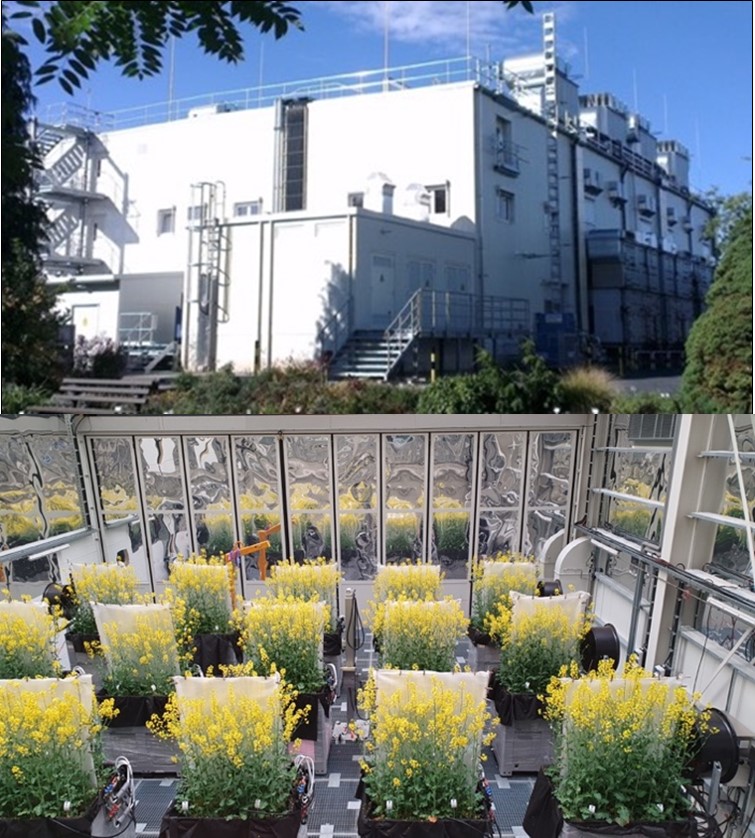
Summary: Analyzing the phenotypes of plants growing under controlled environmental conditions is a requirement if one would like to investigate molecular-physiological mechanisms and biological processes of plant performance at the cellular, organ, whole plant, and canopy level. Use of controlled environments also enables repeated and independent testing of experimental outcomes, a fundamental requirement in research. Climate controlled plant cultivation facilities can furthermore be used to simulate future environmental scenarios to which plants need to be adapted to in order to achieve the required high performance and strong resilience. However, in the past, only little attention was paid to the fact that plants grown under usual controlled conditions can be phenotypically very different from those in the field. This workshop will explore recent advances to apply controlled conditions in such a way that experiments are repeatable and relevant to present and future field conditions.
Contact: Hendrik Poorter; Thomas Altmann
Time: 13:00 - 16:00 (3h)
Max. number of participants: 40 people
Location: Room: Gaia 1; Building: Gaia 101
Speakers:
13:25 - 13:50 Richard Poiré (ANU) “Lost in translation – Challenges and opportunities in lab-to-field studies”
13:50 - 14:15 Avat Shekoofa (Univ. of Tennessee) “Screening genotypes under induced water-deficit stress in controlled environments and field settings”
14:15 - 14:40 Marc Heuermann (IPK) “The potential of the IPK PhenoSphere – field simulation in an indoor system”
14:40 - 15:00 Teabreak
15:00 - 15:25 Jana Kholova (ICRISAT) “Controlled environment phenotyping to field translation: Heading towards technology-assisted crop improvement to accelerate breeding of climate smart crops”
15:25 - 15:50 Francois Tardieu (INRAE) “Platform experiments to help interpretation of multi-site field experiments”
Advancements in Forest & Tree Phenotyping (Forest Phenotyping Working Group – Workshop)
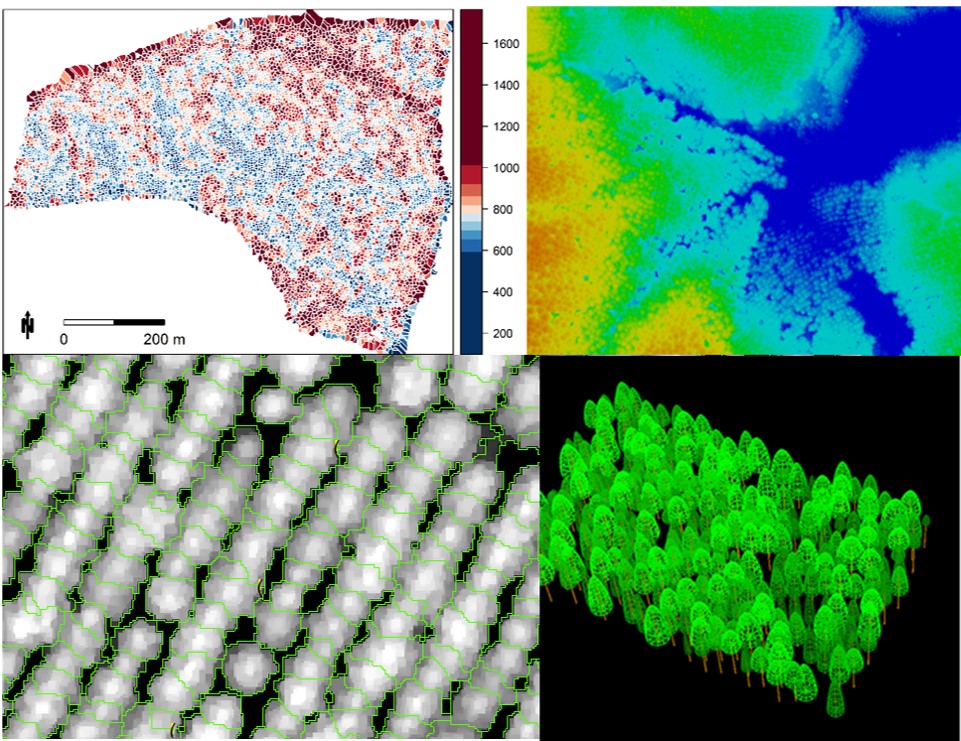
Summary: During this workshop the FPWG will host a series of talks from leading international researchers on the current & future frontiers of forest & tree phenotyping. The workshop will also host an open discussion session before finishing, to provide opportunities for participants to interact and initiate lines of discussion and networks. From genetics through remote sensing to impactful data analysis, the workshop aims to present the latest tools and sciences that reveal the phenotypic traits of forests and trees.
Contact: Maxime Bombrun; David Pont
Time: 12:00 - 14:00
Location: Room: Speakers Corner; Building: Impulse 115
Speakers:
Prof. Nicholas Coops (Faculty of Forestry, University of British Columbia, Canada)
Dr. Gancho Slavov
Halil Radogoshi (Swedish Forest Agency, Sweden) - Artificial Intelligence in Forestry
Affordable Plant Phenotyping Working Group Assembly (Satellite Meeting)
Summary: A working group assembly open to anyone interested in applying & design of affordable phenotyping solutions, with 6 talks & discussions, together with Chair elections.
Contact: David Rousseau; Mark Mueller-Linow
Time: 12:30 - 15:00 (2,5h)
Location: Room: W01 & W02; Building: Radix 107
Speakers:
Meeting Link
Meeting-ID: 310 776 336 249
code: Uyxy2N
Advanced Sensor Applications working group assembly (Satellite Meeting)
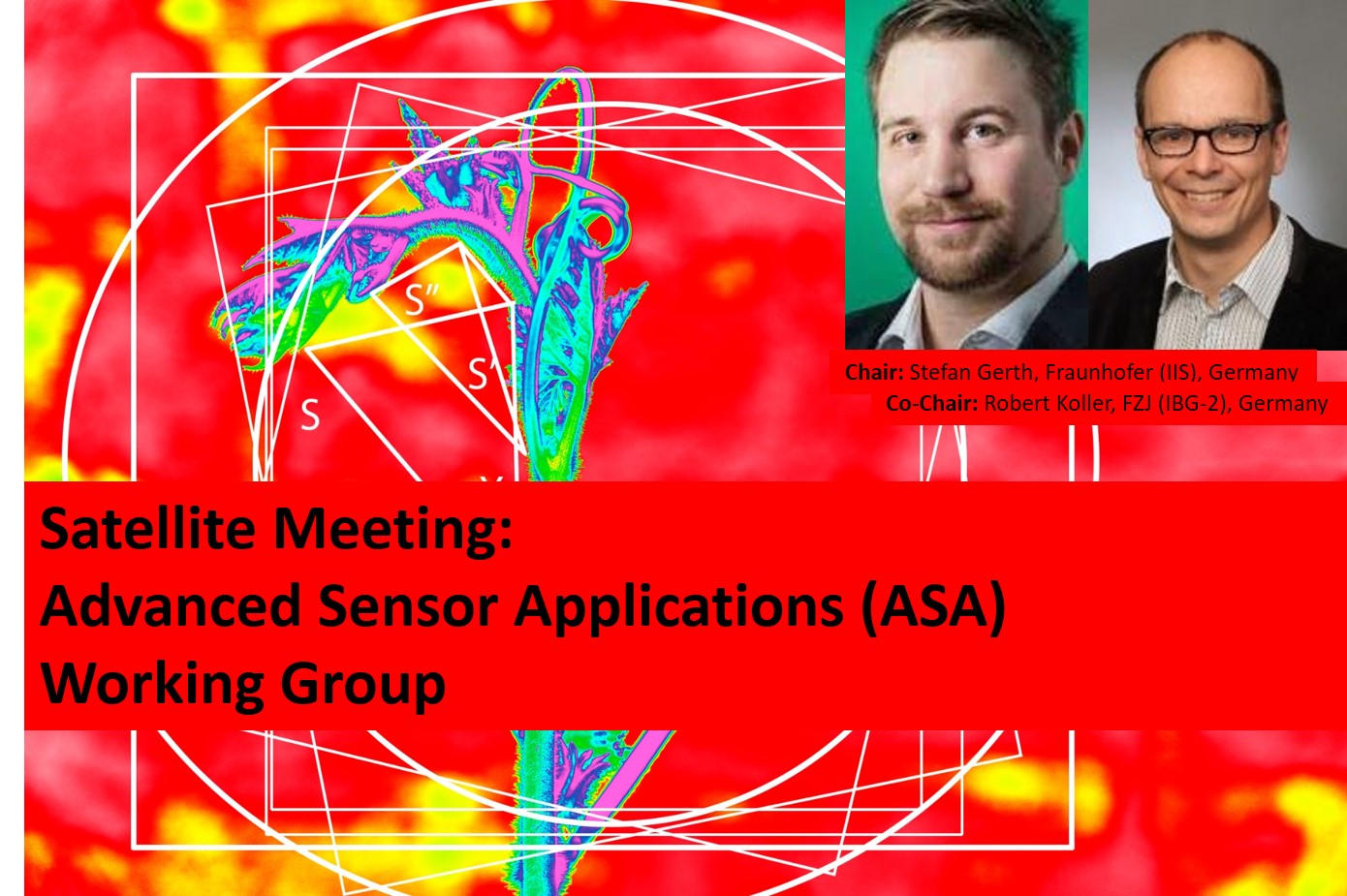
Summary: Assembly of the members of the working group & anyone interested. Presentation of the working group to the audience and definition of activities for the next period. The scope of the workshop is to update the members about the topics within the working group and to include everybody in the planning of the activities within the next year. Additionally, we will discuss how plant sciences could leverage from the physical sensor information in more depth for complex trait discovery.
Contact: Stefan Gerth; Robert Koller
Time: 1h; 15:00-16:00
Location: Room: Atlas 2; Building: Atlas 104
Advances in plant phenotyping data management standard: the MIAPPE adoption status and perspectives

Summary: The workshop will feature talks and discussions related to the Minimum Information about Plant Phenotyping Experiment (MIAPPE) recommendations. The current adoption and use cases will be presented. Beyond this picture of the present status of MIAPPE, its future will be discussed, especially regarding upcoming activities and evolutions proposed by working groups, e.g. to enable advanced environment data exchange and integration.
Contact: Cyril Pommier, Pawel Krajewski
Time: 3,5h: 2x 1,5h with 30min break inbetween
Location: Room: Ncountr; Building: Impulse 115
Max. number of participants: 50 people
WUR Workshops:
Photonics for plant phenotyping (Agrofood Robotics & PhotonicsNL - Workshop)

Summary:
Sensors play a key role in plant phenotyping, of which photonics-based sensors are the most represented. Think of spectral cameras, chlorophyll fluorescence, thermal cameras or Lidar. In this workshop photonics experts will discuss the technical backgrounds and new developments in photonics, with a link to applications in plant phenotyping.
This workshop is jointly organised by WUR Agrofood Robotics and PhotonicsNL.
Contact: Gerrit Polder, Natalie Hotrum, Ron van de Kolk
Program:
12:30 - Registration
13:00 - Opening - Gerrit Polder (WUR), Ron van der Kolk (PhotonicsNL)
13:20 - Keynote - Wouter Charle, IMEC, Snapshot advantage of spectral imaging enabling what is possible beyond plant phenotyping
13:50 - Lecture - Carol de Vries, PhotonDelta and Lex Oosterveld, One Planet, Know what you produce; integrated photonics opens new and affordable ways to do it.
14:10 - Lecture - Antoine Fournier, Arvalis, AgroPhotonics
14:30 - Coffee break
15:00 - Lecture - Pavel Paclik, PerClass, User-friendly spectral image interpretation in plant phenotyping
15:20 - Panel Discussion and networking
15:50 - Closing remarks
Time: 13:00 – 16:00
Location: Room: Podium; Building Omnia 105
Max. number of participants: 270 people
You can register for this workshop (& for any other) for free via the IPPS Converia booking system.
Measuring photosynthesis: bridging the gap between high and low throughput (WUR)
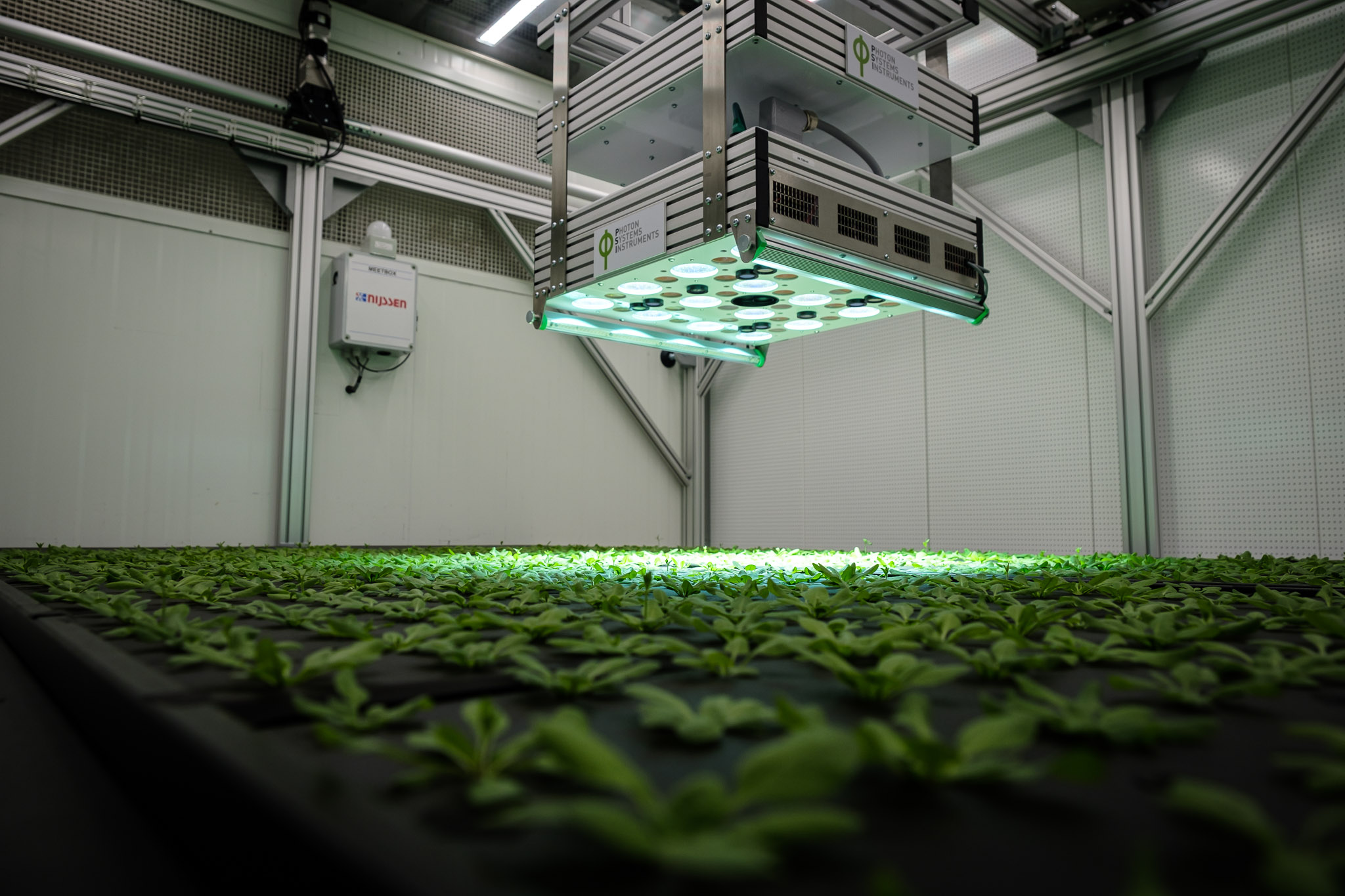
Summary: Screening large numbers of plants via high throughput phenotyping is an excellent method to study phenotypic and genetic variation. Yet, photosynthesis is difficult to characterize in high throughput phenotyping, as it is invisible and strongly environmentally dependent. Many methods to quantify photosynthesis and processes related to it exist, but currently only some of these can be used for ‘snapshot’ measurements. This workshop aims to list methods available to us for characterizing photosynthesis at the leaf, plant or stand level, and to find ways to bridge the gap between ‘slow and accurate’ and ‘quick and dirty’.
The workshop is intended as an inventory of the various methods used to quantify traits related to photosynthesis, with an emphasis on implementing these methods in high-throughput plant phenotyping. Methods will be compared on their advantages and shortcomings with regards to accuracy and speed.
We will start off the workshop by a series of short (10 min) talks on some key methods, including: i) chlorophyll fluorescence imaging, ii) photosynthetic gas exchange, iii) hyperspectral imaging, iv) stomatal conductance phenotyping (including but not limited to thermography), and v) absorbance change imaging. Then, participants are split into several groups for round-table discussions, where they are asked to list and discuss advantages and disadvantages for given methods. Finally, results from the different groups will be brought together in one big overview, and discussed. A final deliverable of the workshop could be a large poster that presents an overview of the status quo and future directions, which could be presented at the main symposium in the days after the workshop.
Speakers:
Prof. Dr. Marek Živčák – Slovak University of Agriculture - Chlorophyll fluorescence imaging
Dr. Silvère Vialet-Chabrand – Wageningen University & Research - Stomatal conductance phenotyping
Dr. Steven Driever – Wageningen University & Research - Photosynthetic gas exchange phenotyping
Dr. Jeremy Harbinson – Wageningen University & Research – Absorbance change imaging
Prof. Dr. Uwe Rasher - Forschungszentrum Jülich - Hyperspectral imaging
Contact: Elias Kaiser; Tom Theeuwen, Mark Aarts
Time: 12:30 – 15:30
Location: Room: B0521 & B0525; Building: Forum 102
Max. number of participants: 40 people
EMPHASIS Networking Session - International Initiatives
Summary:
With this interactive plenum discussion, our initiative of regional/international phenotyping networks aims to get in contact with their stakeholders and stimulate interaction between these initiative’s during this year’s IPPS2022. In order to achieve the best outcomes, we consider the first part to be reserved to frame out & introduce the four initiatives NaPPN, EMPHASIS, APPF & IPPN via brief presentations. After this, the representatives of the network will answer & discuss questions from the audience. Since the event will partly go across dinner time, we foresee to make finger food & drinks available.
Aims
Agenda
|
Time |
Content |
Description |
|
18:00 |
Pitch talks of major initiatives |
Short talks introducing to APPF, NaPPN, EMPHASIS and IPPN |
|
18:25 |
Plenary discussion |
Moderated discussion (supported by digital technologies) on potential synergies, alignments and joint activities (with focus on having an active audience) |
|
18:55 |
Summary |
|
|
19:00 |
End of session |
|
Contact: Sven Fahrner, Roland Pieruschka
Time: 28 Sep 2022, 18:00 – 19:00 pm CEST


